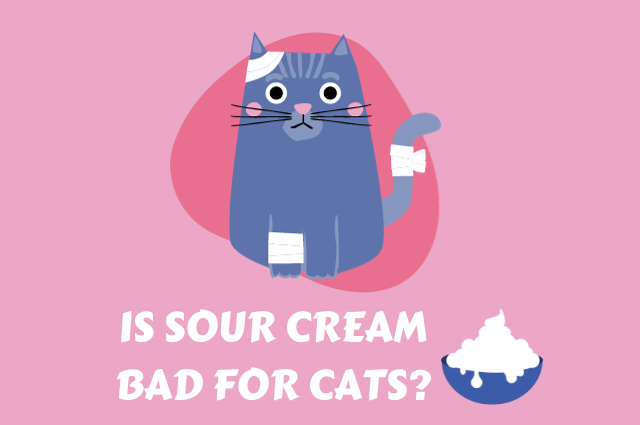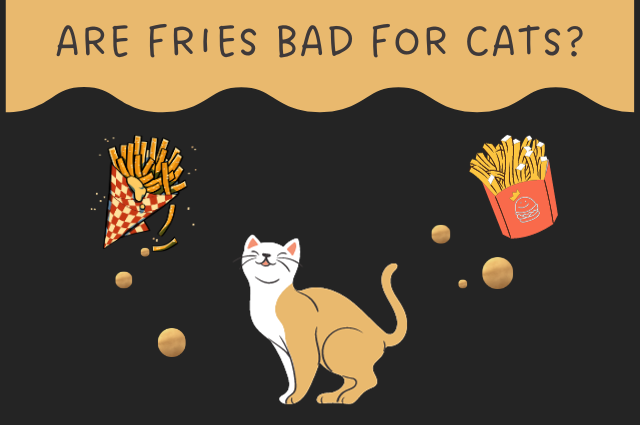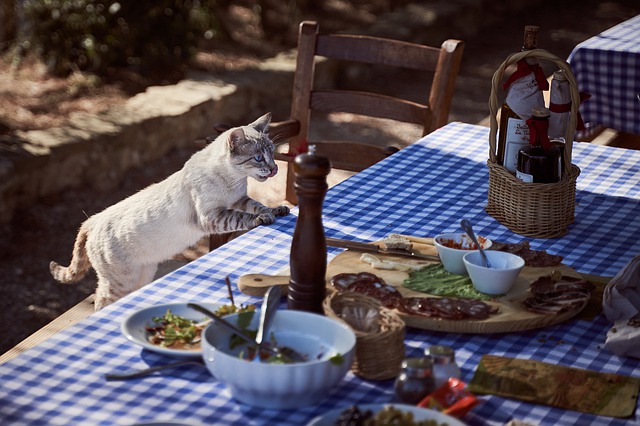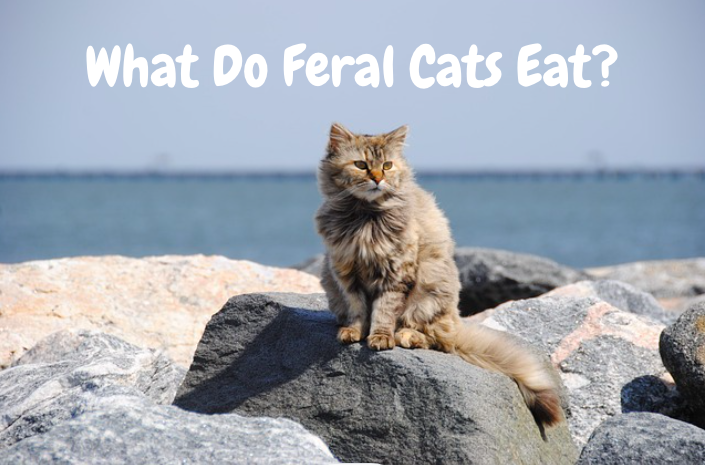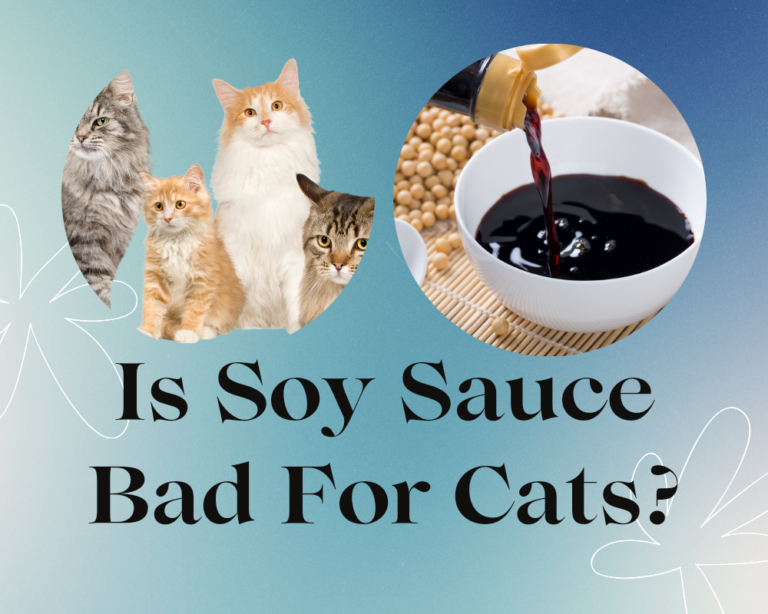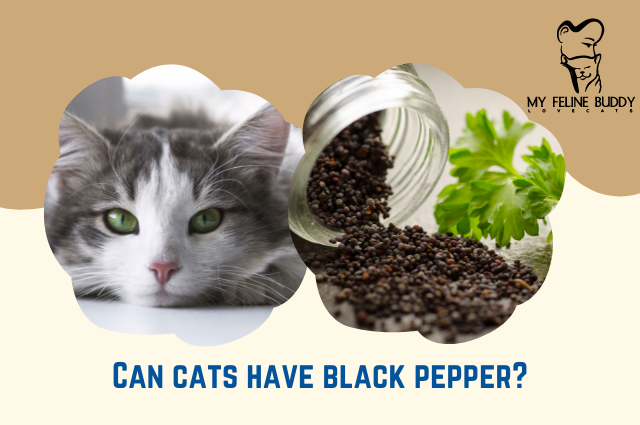Is Sour Cream Bad for Cats?
Sour cream is a popular food ingredient that is enjoyed by many humans. However, when it comes to our feline friends, it’s important to consider their specific dietary needs and whether sour cream is safe for their consumption. In this article, we will delve into the question of whether sour cream is bad for cats and explore the potential effects it may have on their health.
Understanding a Cat ‘s Digestive System
Before we can determine if sour cream is harmful to cats, it’s crucial to have a basic understanding of their digestive system. Cats are obligate carnivores; therefore, their bodies are designed to primarily process animal protein. Unlike humans, cats lack the right enzymes to efficiently break down and digest certain substances found in dairy products, including lactose.
When a
The Basics of Feline Nutrition
Cats require a balanced diet that consists mainly of high-quality animal protein. Their nutritional needs are met through the consumption of meat, which provides essential nutrients such as taurine and arachidonic acid. As obligate carnivores, cats have a higher requirement for these nutrients compared to other animals.
Once the food reaches the stomach, it undergoes further breakdown through the action of stomach acid and digestive enzymes. These substances help to break down the proteins into smaller components that are capable of being absorbed by the
In the small intestine, food nutrients are absorbed into the bloodstream and taken to various parts of the
Lactose Intolerance in Cats
When it comes to dairy products like sour cream, cats often struggle to digest lactose, a sugar found in milk. Most adult cats are lactose intolerant, meaning that they lack the necessary enzyme, lactase, to break down lactose. Consuming lactose can lead to gastrointestinal discomfort, including diarrhea, bloating, and gas.
While cats may be curious about the taste and smell of sour cream, it is generally not recommended to feed it to them. The lactose in sour cream can cause digestive upset and discomfort. It’s important to prioritize a
Additionally, it’s worth noting that not all cats will have the same level of lactose intolerance. Some cats may be able to tolerate small amounts of lactose without experiencing any adverse effects. However, it’s always best to err on the side of caution and avoid feeding cats dairy products like sour cream.
In conclusion, understanding a
The Composition of Sour Cream
Now that we have a basic understanding of feline nutrition and lactose intolerance, let’s take a closer look at the composition of sour cream and its potential effects on cats.
Sour cream is a dairy product. It is produced by fermenting cream with specific bacteria. It is commonly used as a topping or ingredient in various dishes, adding a creamy and tangy flavor. While it may contain vitamins A and D, sour cream is primarily composed of fat, calories, and lactose.
Read more: Cat Food Ingredents – What You Should Know
Fat is an essential nutrient for cats as it provides energy and helps with the absorption of fat-soluble vitamins. However, it is important to note that the source of fat in a
Calories, on the other hand, are a measure of the energy content in food. Sour cream, being a high-fat dairy product, is relatively high in calories. It is crucial to consider the calorie intake of cats to prevent obesity and related health issues.
One of the key components of sour cream is lactose, a type of sugar found in milk and other dairy products. Cats, like many other mammals, lack the necessary enzyme called lactase to break down lactose. As a result, consuming sour cream or any dairy product can lead to lactose intolerance in cats.
You might also like: What do feral cats eat?
Nutritional Value of Sour Cream
While sour cream does provide some nutritional value, it is important to consider the overall dietary needs of cats. As obligate carnivores, cats require a diet high in animal protein/low in carbohydrates. While sour cream may offer a small amount of protein, it is not a suitable source of this essential nutrient for cats.
In terms of vitamins and minerals, sour cream may contain vitamins A and D. These vitamins play important roles in maintaining healthy vision, immune function, and bone health. However, it is worth noting that cats have specific dietary requirements for these vitamins, and they are best obtained from animal-based sources rather than dairy products.
Potential Allergens in Sour Cream
In addition to lactose, sour cream may contain potential allergens such as casein and whey protein. These proteins are derived from milk and can trigger allergic reactions in cats, just like in humans. Allergic reactions in cats can manifest as skin irritations, excessive itching, vomiting, or diarrhea.
It is important to monitor your
In conclusion, while sour cream may be a popular and tasty addition to human meals, it is not a suitable food for cats. Cats have specific dietary needs that should be met with a balanced and appropriate feline diet. It is always best to consult with a veterinarian to ensure your
Read more: Is soy sauce bad for cats?
Effects of Sour Cream on Cats
Now that we have examined the composition of sour cream, let’s explore the potential effects it may have on cats when consumed.
Immediate Reactions to Sour Cream
If a
Long-term Health Implications
Continued consumption of sour cream by cats may have long-term health implications. The high fat and calorie content of sour cream can contribute to weight gain and obesity in cats. Additionally, regular intake of dairy products may disrupt a
You might also like: Barley grass for cats
Alternatives to Sour Cream for Cats
If you enjoy sharing a treat with your
Safe Dairy Products for Cats
While sour cream is not recommended for cats, there are certain dairy products that can be safely consumed in moderation. Plain yogurt and cottage cheese, for example, may be given to cats as a treat. However, it’s crucial to ensure that these dairy products do not contain any added sugars or artificial sweeteners.
Non-Dairy Treat Options
For
Frequently Asked Questions
Can Cats Have Sour Cream?
Considering the potential health implications and digestive challenges, it is not recommended to feed sour cream to cats. The lactose content and potential allergens in sour cream make it a risky choice for feline consumption. It’s always best to prioritize your pet’s health and well-being by always sticking to a balanced and suitable diet.
Why Do Cats Like Sour Cream?
While cats may show interest in sour cream due to its fatty taste and creamy texture, it is important to remember that their preference does not always align with what is safe or beneficial for their health. It’s essential for their owners to make informed decisions on their behalf and provide them with nutritionally appropriate options.
Can Cats Eat Sour Cream and Onion Chips?
Onion in any form, including onion-flavored chips, can be toxic to cats. The compounds found in onions can cause damage to a
Does Sour Cream Hurt Cats?
While a small amount of sour cream might not immediately harm or poison a
Can Cats Eat Sour Cream and Cheddar Cheese Ruffles?
Cheddar cheese-flavored snacks, such as cheddar cheese ruffles, should also be avoided when it comes to feeding cats. These snacks often contain artificial flavors, colors, and additives that are not suitable for cats. Additionally, the high salt content in such snacks can be detrimental to a
When to Consult a Vet
If you suspect your
Signs of Food Allergies in Cats
If you notice any abnormal reactions, such as excessive itching, skin irritations, or gastrointestinal upset, after your
Seeking Professional Advice for Feline Nutrition
Your veterinarian can provide valuable recommendations specific to your
Read more: Is arugula bad for cats?
Final thoughts
In conclusion, sour cream is not a suitable food for cats due to their lactose intolerance and potential allergenic effects. When it comes to your feline friend’s nutrition, it’s essential to prioritize their health and provide them with a balanced diet meeting their specific dietary requirements. By understanding the basics of feline nutrition and seeking professional advice, you can make informed choices about your
